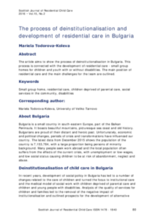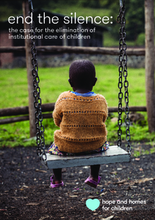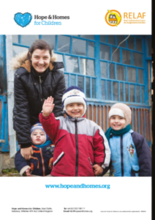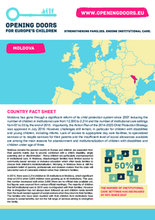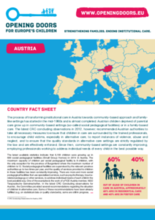Displaying 311 - 320 of 662
The article aims to show the process of deinstitutionalisation in Bulgaria.
This policy paper from Hope and Homes for Children calls on all the stakeholders that play a role in developing, running, supporting or influencing national care systems to join forces in a collaborative action to eradicate institutional care once and for all.
În temeiul prevederilor punctului 89 din Strategia pentru protecţia copilului pe anii 2014-2020, aprobată prin Hotărîrea Guvernului nr. 434 din 10 iunie 2014 (Monitorul Oficial al Republicii Moldova, 2014, nr. 160-166, art.
Décadas de investigaciones comprueban que el crecimiento de un niño en una institución posee un impacto nocivo en cuanto a lo psicológico, lo emocional y lo físico, incluyendo trastornos de vinculación, retrasos cognitivos y en el desarrollo, y una falta de capacidades sociales y para la vida que luego concluyen en múltiples desventajas durante la adultez.
As of this Fact Sheet, Serbia has no comprehensive deinstitutionalization strategy.
This Country Fact Sheet from Moldova reports that since 2007, the number of children in institutional care has dropped from 12,000 to 2,214.
This Country Fact Sheet discusses deinstitutionalization as part of Hungary’s child welfare and protection policy.
This fact sheet highlights Austria’s process in transforming institutional care towards community-based and family-based systems.
The purpose of this chapter of The United Nations Convention on the Rights of the Child: Taking Stock after 25 Years and Looking Ahead, is to outline the importance of children’s rights monitoring of (international) institutions such as the ICC and to introduce a measurement matrix for undertaking such monitoring.
Due to poverty and military conflicts in the east, the number of children in institutional care in Ukraine has increased.

